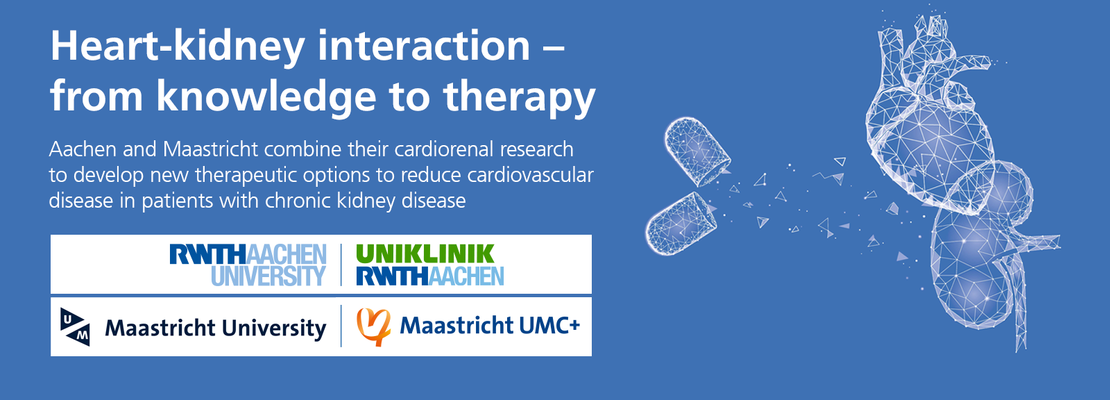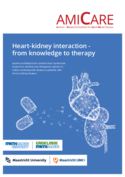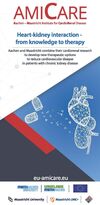The Challenges
The cardiorenal research gap
The mechanisms underlying the effects of CKD on the cardiovascular system are still largely unexplored. Until now, the complex heart-kidney interplay has largely been neglected and both organs have mainly been considered as separate entities. Although CKD has been identified as an independent risk factor for CVD, cardiorenal patients are currently underrepresented in scientific and clinical studies, and therapeutic options to reduce cardiovascular risk in patients with CKD are only available to a very limited extent. This is associated with a high socio-economic burden in addition to the individual limitation of quality of life and reduced life expectancy of these patients.
These alarming numbers and the cardiorenal research gap highlight the urgency of in-depth understanding of the complex heart-kidney interplay and calls for an increased focus on the cardiorenal patient. Also, it underlines the need of interdisciplinary research, combining the expertise of cardiologists, nephrologists and pathologists, basic researchers in the field of biochemistry, molecular biology and biomedical engineering, as well as private partners in the field of pharmaceuticals, biomedical applications and medical and digital device development. Only by actively joining forces, innovative diagnostic and therapeutic approaches focusing on the cardiorenal patient can be identified and translation of research results into clinical practice will be met.
The application gap
Valorisation of research results becomes applicable through the identification of disease markers and interventional targets, the development of medical and digital devices, as well as the development of bioassays, bio-based products and technologies.
However, valorisation of research results is often failing, since it requires a direct and interdisciplinary interaction of basic researchers, clinicians and private partners as pharmaceutical companies, medical and digital device companies as well as biotech companies.
Only close proximity and interdisciplinary interaction of researchers, clinicians and private partners can accelerate application-driven and patient-relevant research and translation thereof.
The education gap
A low education level has been linked with an increased presence of cardiovascular risk factors, such as obesity, in the western world. Furthermore, both the North Rhine-Westphalia region of Germany and the Limburg province of the Netherlands show elevated prevalence of childhood obesity and lifestylerelated CVD. Risk analyses of the Robert-Koch Institute showed that low social status and low educational achievement lead to an increased risk of obesity. Especially if both parents are also obese, this is associated with a significantly increased risk for their children.
Public health education and raising awareness of diet-induced obesity, hyperlipidemia, diabetes, hypertension and other risk factors are essential in combatting cardiorenal disease in a sustainable manner.






